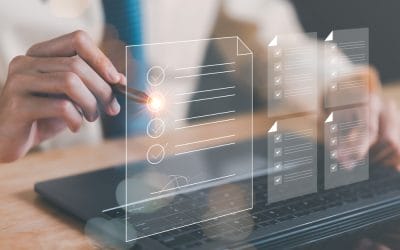Vancouver, Canada - iComply Investor Services Inc., a leader in compliance technology, is excited to announce a strategic partnership with Qoden, a premier technology company specializing in advanced trading platform solutions. This partnership is centered around...

iComply Investor Services Inc. Forms Strategic Partnership with Qoden to Enhance KYC Processes
iComply Investor Services Inc. Forms Strategic Partnership with Qoden to Enhance KYC Processes
Vancouver, Canada – iComply Investor Services Inc., a leader in compliance technology, is excited to announce a strategic partnership with Qoden, a premier technology company specializing in advanced trading platform solutions. This partnership is centered around leveraging iComply’s cutting-edge product, iComplyKYC™, to redefine KYC (Know Your Customer) compliance for organizations worldwide.
Since its inception in 2017 by CEO Matthew Unger, iComply has carved a niche within the compliance sector, championing the cause of secure and compliant digital transactions. The cornerstone of this is iComplyKYC™, a solution that embodies iComply’s commitment to “Trust in every transaction.” By harnessing the power of artificial intelligence and edge computing, iComplyKYC™ revolutionizes KYC compliance, enabling businesses to meet stringent regulatory requirements with unparalleled efficiency and accuracy.
Qoden, founded in the same year as iComply, offers customizable fintech solutions such as crypto exchanges, investment platforms and digital tokenization. Qoden’s products are known for their modularity, which make integration with in-house systems seamless, and demonstrate high resilience under heavy loads. The partnership with iComply reinforces Qoden’s commitment to providing robust and compliant trading solutions that cater to the ever-evolving needs of the digital asset markets.
“Partnering with Qoden aligns perfectly with our goal to set new standards in compliance technology,” said Matthew Unger, CEO of iComply Investor Services Inc. “iComplyKYC™ is designed to empower organizations with the tools they need to navigate the complexities of KYC compliance efficiently. Together with Qoden, we are making this a reality for businesses around the world.”
Qoden’s commitment to incorporating the latest technological advancements into its platforms is evident in this partnership.“This collaboration not only boosts our platform compliance capabilities but also highlights our dedication to fostering a secure, legal and efficient trading environment”, stated Vlad Tikhomirov, CTO at Qoden. “This partnership not only enhances our compliance offerings but also reinforces our commitment to providing secure and comprehensive trading solutions.”
For more information about iComply Investor Services Inc. and iComplyKYC™, please visit www.icomplyis.com. To learn more about Qoden and its innovative trading platform solutions, visit https://qoden.com.
About iComply:
iComply Investor Services Inc. has been pioneering compliance technology since 2017 and is headquartered in Vancouver, Canada. Their vision is to pioneer a trusted and secure digital ecosystem that empowers individuals, businesses, and communities, enabling compliant, transparent, and secure transactions worldwide. Learn more: www.icomplyis.com
About Qoden: Founded in 2017, Qoden is a leading technology provider specializing in the development of trading platforms for the cryptocurrency market. With a focus on security, high performance, and legal compliance, Qoden’s solutions are designed to meet the stringent demands of today’s digital asset markets, providing innovative tools that streamline trading operations for users around the globe.
For further details about Qoden and its innovative cryptocurrency solutions, please visit Qoden.
For Media Enquiries:
Theodora Birch, Media Relations
Email: [email protected]
Phone: +1 (929) 547-9415
learn more
Is your AML compliance too expensive, time-consuming, or ineffective?
iComply enables financial services providers to reduce costs, risk, and complexity and improve staff capacity, effectiveness, and customer experience.
Request a demo today.
iComply Investor Services Inc. Forms Strategic Partnership with Qoden to Enhance KYC Processes
Overcoming Challenges in Digital Identity Verification for Enhanced Security
In an increasingly digital world, verifying the identity of individuals in online networks has become an essential part of security and compliance measures. With users from all over the globe utilizing digital applications to handle their banking, asset management,...
The Impact of Neobanks on AML and KYC Compliance: Ensuring Security in a Decentralized Era
As global financial institutions collectively face the reality of managing a consumer base that has aggressively adopted an increasingly digital presence, traditional banks are also facing a rising challenge in competing against a rapidly decentralizing model of...




